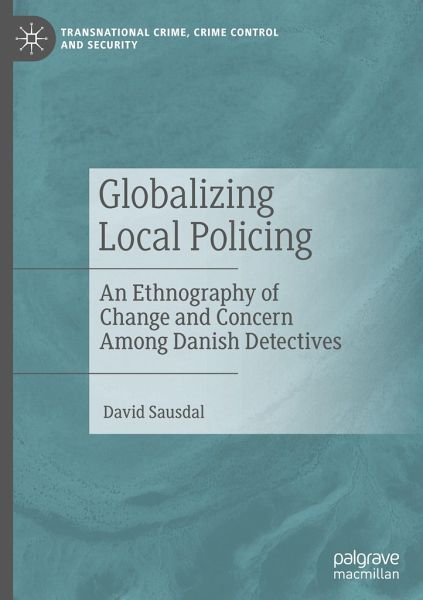
Globalizing Local Policing
An Ethnography of Change and Concern Among Danish Detectives
Versandkostenfrei!
Versandfertig in 6-10 Tagen
38,99 €
inkl. MwSt.
Weitere Ausgaben:

PAYBACK Punkte
19 °P sammeln!
The book examines 'the globalization of local policing' through an ethnographic study of the Danish Police. Where many studies are looking into how larger inter- or transnational policing bodies and policies are changing the world of policing, few have gauged how local, public police forces are also globalizing. This book provides some unique insights into this under-researched process. Specifically, it describes the daily practices and perceptions of two Danish detective task forces, tasked with the investigation of organized property crimes committed by foreign nationals. In the book, reader...
The book examines 'the globalization of local policing' through an ethnographic study of the Danish Police. Where many studies are looking into how larger inter- or transnational policing bodies and policies are changing the world of policing, few have gauged how local, public police forces are also globalizing. This book provides some unique insights into this under-researched process. Specifically, it describes the daily practices and perceptions of two Danish detective task forces, tasked with the investigation of organized property crimes committed by foreign nationals. In the book, readers get to see how the detectives think and work, including the many efforts they make in attuning their daily work to a more global reality. More so, readers get to see how the detectives fail and the many frustrations and concerns that such changes include. One the one hand, Danish detectives very much understand the need to de-localize and develop their work. On the other hand, they feel that many of these changes are in conflict with what they find to be real and rewarding police work. For people interested in contemporary issues of policing, the book thus points to a puzzling paradox. Globalization might be making for more mobile and even mobilised local forces, more technologically driven and collaborating with international partners. However, these very processes are also making local officers feel more disarmed than ever. Ultimately, the book describes why that is, its consequences, as well as how to imagine a form of global policing more in tune with its local actors.














